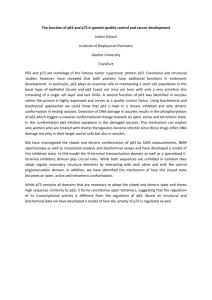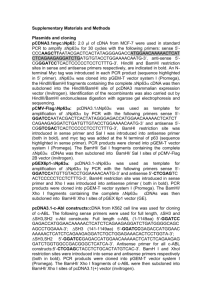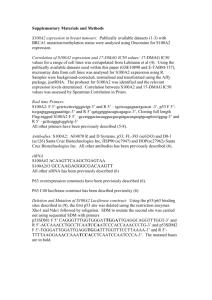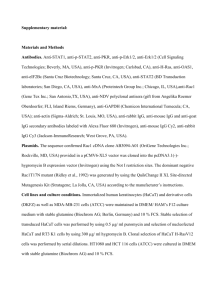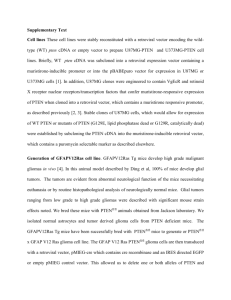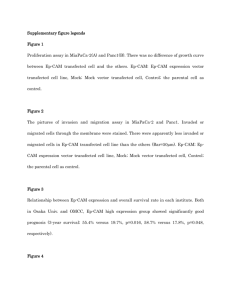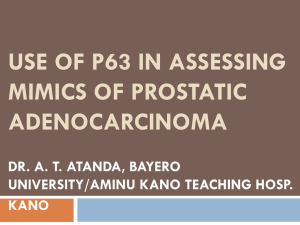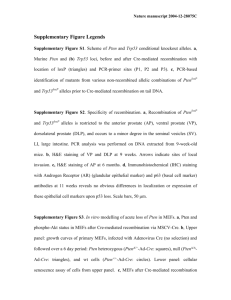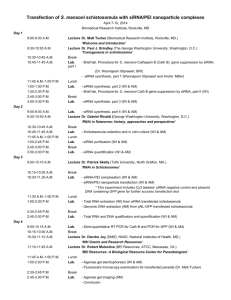Fig - Nature
advertisement
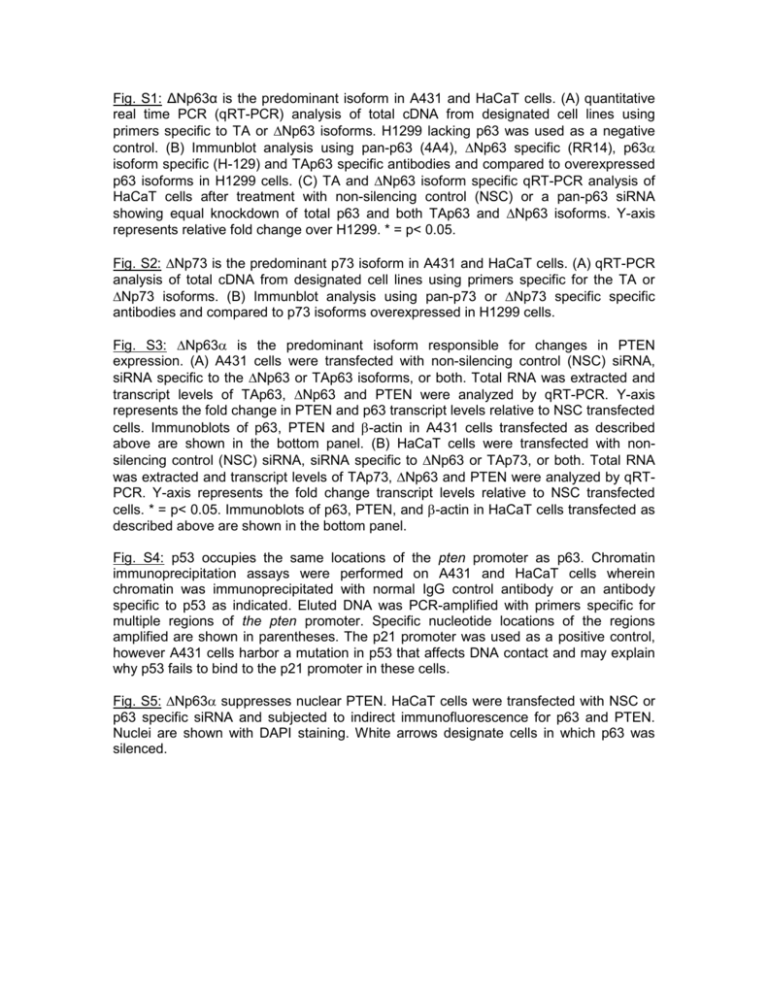
Fig. S1: ΔNp63α is the predominant isoform in A431 and HaCaT cells. (A) quantitative real time PCR (qRT-PCR) analysis of total cDNA from designated cell lines using primers specific to TA or Np63 isoforms. H1299 lacking p63 was used as a negative control. (B) Immunblot analysis using pan-p63 (4A4), Np63 specific (RR14), p63 isoform specific (H-129) and TAp63 specific antibodies and compared to overexpressed p63 isoforms in H1299 cells. (C) TA and Np63 isoform specific qRT-PCR analysis of HaCaT cells after treatment with non-silencing control (NSC) or a pan-p63 siRNA showing equal knockdown of total p63 and both TAp63 and Np63 isoforms. Y-axis represents relative fold change over H1299. * = p< 0.05. Fig. S2: Np73 is the predominant p73 isoform in A431 and HaCaT cells. (A) qRT-PCR analysis of total cDNA from designated cell lines using primers specific for the TA or Np73 isoforms. (B) Immunblot analysis using pan-p73 or Np73 specific specific antibodies and compared to p73 isoforms overexpressed in H1299 cells. Fig. S3: Np63 is the predominant isoform responsible for changes in PTEN expression. (A) A431 cells were transfected with non-silencing control (NSC) siRNA, siRNA specific to the Np63 or TAp63 isoforms, or both. Total RNA was extracted and transcript levels of TAp63, Np63 and PTEN were analyzed by qRT-PCR. Y-axis represents the fold change in PTEN and p63 transcript levels relative to NSC transfected cells. Immunoblots of p63, PTEN and -actin in A431 cells transfected as described above are shown in the bottom panel. (B) HaCaT cells were transfected with nonsilencing control (NSC) siRNA, siRNA specific to Np63 or TAp73, or both. Total RNA was extracted and transcript levels of TAp73, Np63 and PTEN were analyzed by qRTPCR. Y-axis represents the fold change transcript levels relative to NSC transfected cells. * = p< 0.05. Immunoblots of p63, PTEN, and -actin in HaCaT cells transfected as described above are shown in the bottom panel. Fig. S4: p53 occupies the same locations of the pten promoter as p63. Chromatin immunoprecipitation assays were performed on A431 and HaCaT cells wherein chromatin was immunoprecipitated with normal IgG control antibody or an antibody specific to p53 as indicated. Eluted DNA was PCR-amplified with primers specific for multiple regions of the pten promoter. Specific nucleotide locations of the regions amplified are shown in parentheses. The p21 promoter was used as a positive control, however A431 cells harbor a mutation in p53 that affects DNA contact and may explain why p53 fails to bind to the p21 promoter in these cells. Fig. S5: Np63 suppresses nuclear PTEN. HaCaT cells were transfected with NSC or p63 specific siRNA and subjected to indirect immunofluorescence for p63 and PTEN. Nuclei are shown with DAPI staining. White arrows designate cells in which p63 was silenced.
